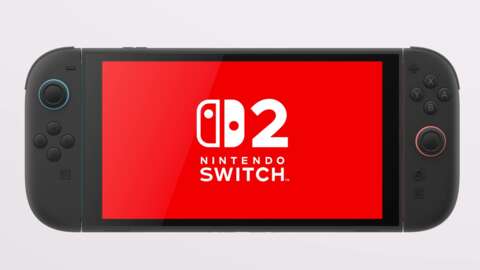When Nintendo launched the second version of their innovative gaming console, the Nintendo Switch 2, it was met with great anticipation. However, reports from a third-party developer have indicated that sales numbers were not as robust as expected, underscoring the muted performance of third-party launch titles in the initial two weeks.
The line-up for the Nintendo Switch 2’s inauguration comprised a variety of third-party titles. Survival Kids by Konami, Bravely Default Flying Fairy HD Remaster developed by Square Enix, CD Projekt Red’s celebrated Cyberpunk 2077, among others, were some of the launch games. However, data suggests that a massive 81% of physical Nintendo Switch 2 game sales were for first-party releases, such as Mario Kart World and the versions of The Legend of Zelda: Breath of the Wild and The Legend of Zelda: Tears of the Kingdom, tailored for Switch 2.
NielsenIQ suggests that amongst the third-party games, Cyberpunk 2077 has performed well. Additionally, Sega has emerged as the third-largest publisher of Switch 2 games, according to data from Circana.
In an interesting turn of events, Circana’s executive director Mat Piscatella revealed that the share of third-party unit sales of Switch 2 reached close to 40% in the first week of its release. Notably, this figures stands to be almost double the percentage of what these games accounted for at the launch of the Switch 1.
Conversely, these figures have also been met with critique; while an improvement from the performance of third-party games on the original Switch is commendable, the overall reception does not paint an auspicious picture. Astoundingly, despite the record-shattering introduction of Nintendo Switch 2, one publisher has stated that their lowest estimations for third-party games’ performance were too optimistic.
These sales statistics have stirred debates concerning the negative impacts of Game-Key Cards, physical game cartridges that do not carry a game’s full data and yet necessitate a download. Retailer Kelsey Lewin, a noted Seattle-based game vendor, confirmed that sales of these Game-Key Cards have been bleak, stating that the in-store expectations were low and have been met with lesser enthusiasm by consumers.
In a more optimistic outlook, Daniel Ahmad, the director of research and insights at Niko Partners, does not perceive the Game-Key Cards as detrimental to the sales of the third-party Switch 2 games. According to him, those consumers who refuse to buy a game for Nintendo Switch 2 if the physical version does not comprise the full game are minor and will significantly decline in the coming years.
Though initial sales of third-party games on the Switch 2 have been comparatively slow, the future still beholds an opportunity for improvement as more new games make their way to the console. It will be intriguing to see how the sales shape up and what strategies will the third-party game developers implement to bolster their performance on the Nintendo Switch 2.

Leave a Reply